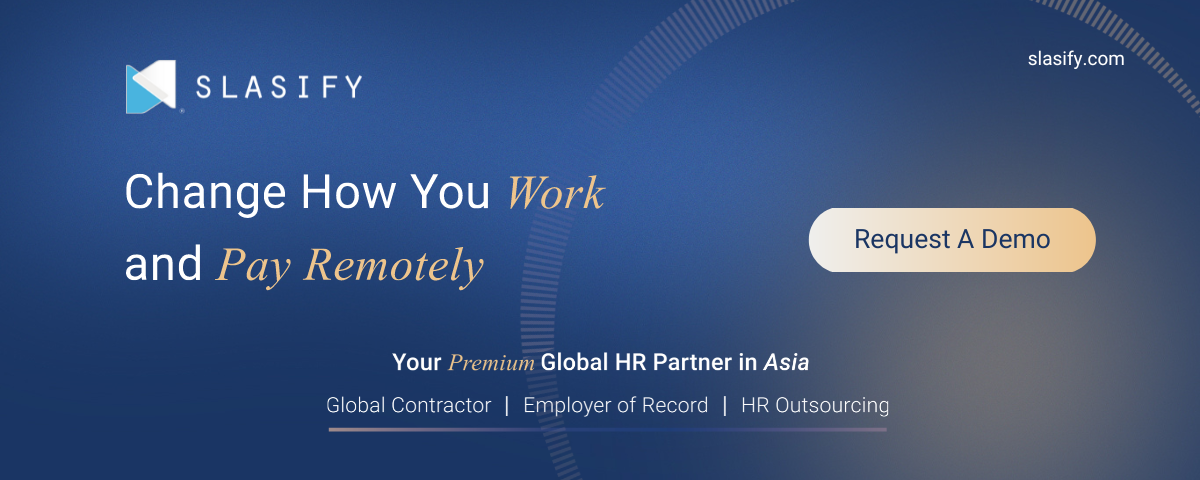You know what’s scary? Non-compliance
Imagine this: You’ve built a global empire with skillful talents, a diverse portfolio of innovative products, an extensive network of loyal customers, and a robust supply chain that ensures the seamless flow of goods and services across borders. What could possibly go wrong?
Non-compliance
Yes, this is the start to every business nightmare. In today’s complex global landscape, non-compliance with a plethora of laws and regulations can have far-reaching, deeply unsettling consequences. From legal and financial penalties to the erosion of a company’s reputation and trust, the repercussions of non-compliance are genuinely frightening. In this article, we’ll delve into each of the five specific aspects that illustrate why not being compliant is scary.
1. Legal and Regulatory Penalties
Navigating legal and regulatory compliance is a demanding task for any business. Non-compliance in global expansion has far-reaching and often devastating consequences. It’s not merely about facing monetary fines, although these can be substantial and instantly impact a company’s financial health. The real nightmare begins with the potential escalation of legal troubles.
First and foremost, non-compliance can lead to drawn-out, resource-intensive litigation. Companies may find themselves embroiled in lawsuits, either brought by regulatory authorities or affected parties such as employees or customers. These legal battles can span months or even years and drain financial resources.
Next, regulatory authorities may launch in-depth inquiries into a company’s operations, processes, and adherence to compliance standards. These investigations can cast a pervasive pall over day-to-day operations. Companies often must use significant resources and manpower to address the demands of these investigations, resulting in operational disruptions and increased costs.
In the most extreme cases, non-compliance can lead to the nightmare scenario of license revocation and business shutdown. Regulatory bodies have the authority to revoke licenses necessary for a business’s operation, such as permits, licenses, or certifications. Such actions can be a severe blow to a company, rendering it unable to continue its operations legally. In situations where non-compliance poses significant risks to public safety or ethical standards, regulators may even order a business to cease its activities altogether.

2. Reputational Damage
Non-compliance has the potential to shatter a company’s reputation, ultimately leading to profound and long-lasting consequences. The fear of reputational damage is not limited to a passing moment of bad publicity. In the digital age, negative information about a company can spread like wildfire, thanks to the reach of social media and the constant flow of news. The consequence of this rapid dissemination is a widespread loss of trust. Customers, stakeholders, and the public can quickly become aware of a company’s non-compliance, which can lead to a drastic reduction in their trust and confidence.
The fear of reputational damage doesn’t stop at customer distrust. It extends to the workforce as well. Potential employees may hesitate to join a company with a tarnished reputation, fearing the risk it presents to their careers. This can lead to difficulties in attracting top talent, which is essential for a company’s growth and innovation.
The long-term consequences of reputational damage are nothing short of terrifying. It can undermine a company’s brand, market position, and profitability. In an era where trust and brand perception play a pivotal role in consumer decisions, the loss of reputation is a threat that no business can afford to take lightly.
3. Employee Dissatisfaction
To no one’s surprise, non-compliance with labor laws and employment standards can cause unsettling employee dissatisfaction and create a hostile work environment. Once this line is crossed, the dissatisfaction can spread like wildfire within the organization. Employees may feel undervalued, mistreated, and ignored, making them resort to the most chilling outcomes for talent management: disengagement.
When employees become disengaged due to non-compliance, their productivity can plummet, causing a significant drag on the company’s performance. Disengaged employees are often less motivated to contribute their best efforts and may even become sources of negativity within the workplace, further eroding morale and productivity.
High turnover rates are yet another fear. As employees become increasingly dissatisfied, they may seek alternatives, leading to a constant cycle of recruiting, onboarding, and training new personnel. Perhaps the most dreaded aspect of non-compliance-related employee dissatisfaction is the potential for legal action. Legal action can be a costly and resource-intensive process that can drag on for an extended period, not to mention the damage it can do to a company’s reputation.

4. Tax Liabilities
The financial implications of non-compliance with tax regulations are enough to strike terror into the hearts of business leaders. If a company falls short in terms of tax withholding, reporting, or payment, it can lead to substantial financial burdens. The nightmare scenario involves facing unexpected and substantial tax liabilities. These liabilities can severely affect a company’s cash flow, potentially leading to financial strain.
Moreover, tax liabilities can divert resources that could otherwise be used for investment in innovation and expansion. The fear of having to allocate funds to resolve tax liabilities instead of furthering a company’s strategic initiatives is a daunting prospect. It can put a halt to growth, hampering a company’s ability to compete and thrive in a competitive market.
The threat of tax liabilities isn’t limited to immediate financial consequences. It can have a cascading impact on a company’s financial health, making it a fear that business leaders can’t afford to ignore. The key lesson here is clear: tax compliance is fundamental to a company’s financial stability and ability to invest in its future.

5. Data Privacy and Security
In today’s rampant proliferation of data breaches and cyberattacks, non-compliance with data protection regulations emerges as one of the most terrifying threats to businesses. The nightmare begins with the understanding that data privacy and security regulations are becoming increasingly stringent, demanding meticulous adherence. Mishandling sensitive customer or employee data is a horror that could come to life for businesses that fail to meet these requirements.
A data breach, the most feared outcome of non-compliance, is a scenario where sensitive data is compromised. This can lead to financial costs, regulatory penalties, and a profound loss of customer trust. The financial implications are extensive, involving costs related to notifying affected parties, providing credit monitoring services, and potential fines from regulatory authorities. These financial hits can be substantial and are often unexpected.
However, it’s the damage to a company’s reputation that is most terrifying. The fear of losing the trust of customers and stakeholders can keep business leaders up at night. A company’s reputation, once tarnished by a data breach, can take years, if not decades, to rebuild. The negative perception of a brand can persist, eroding customer loyalty and inhibiting growth.
And of course, the fear of litigation further aggravates the nightmare.
No more non-compliance nightmares with Slasify
In conclusion, non-compliance with legal and regulatory requirements is truly a frightening prospect, with consequences that extend far beyond the immediate financial or operational implications. The fear of legal penalties, reputational damage, employee dissatisfaction, financial liabilities, and data security pose significant threats to business leaders. To mitigate these fears and risks, businesses must prioritize compliance as a foundational business practice.
At Slasify, we take compliance very seriously. With service coverage in over 150 countries and 130 currencies, we provide a comprehensive global payroll and Employer of Record (EOR) solution that ensures your business expansion is fully compliant with local labor laws, tax regulations, and employment standards. With us by your side, you can say goodbye to compliance horrors once and for all!
Related Articles:
Navigating International Employment Laws: How Slasify Can Help Your Business Stay Compliant
Hiring Overseas: What Business Owners Should Know Before Setting Up Foreign Entities
Avoid the Compliance Conundrum: The Importance and Consequences of Compliant Employment
Slasify is a one-stop platform offering Global Payroll, Employer of Records (EOR), and HR Outsourcing functions for the remote working generation. Our dedication to Diversity, Equality, and Inclusivity (DEI) and a proven track record with Forbes Top 100 Companies make us your ultimate payroll partner. Join us on a global HR journey, where we cater to your needs across 150+ countries. Unlock HR solutions tailored to you – Book a free consultation below!




